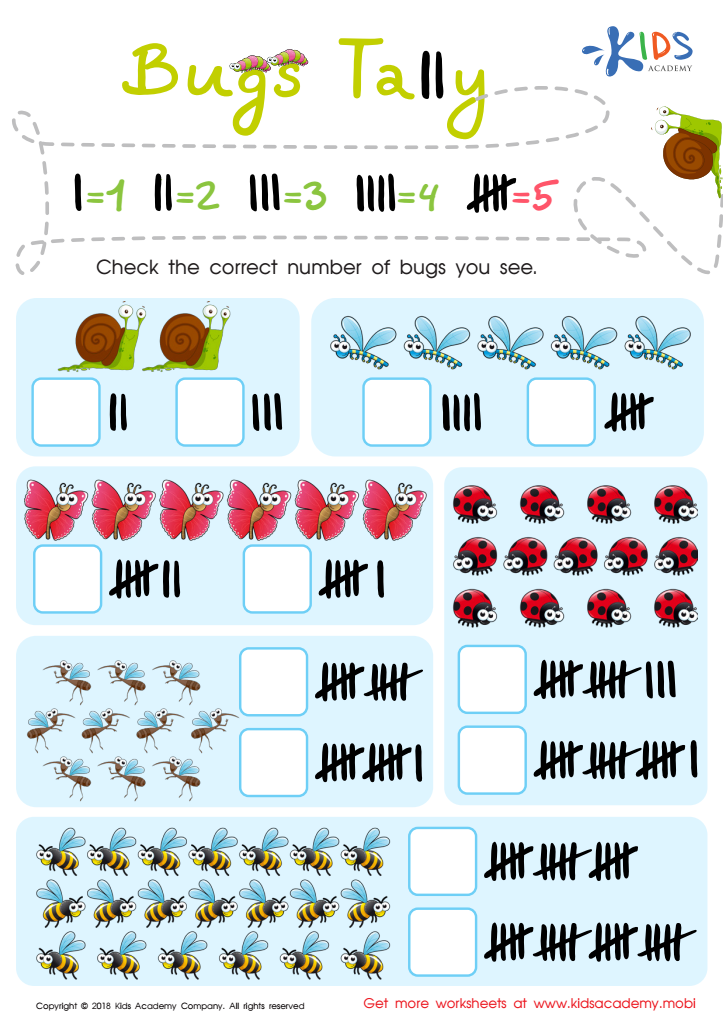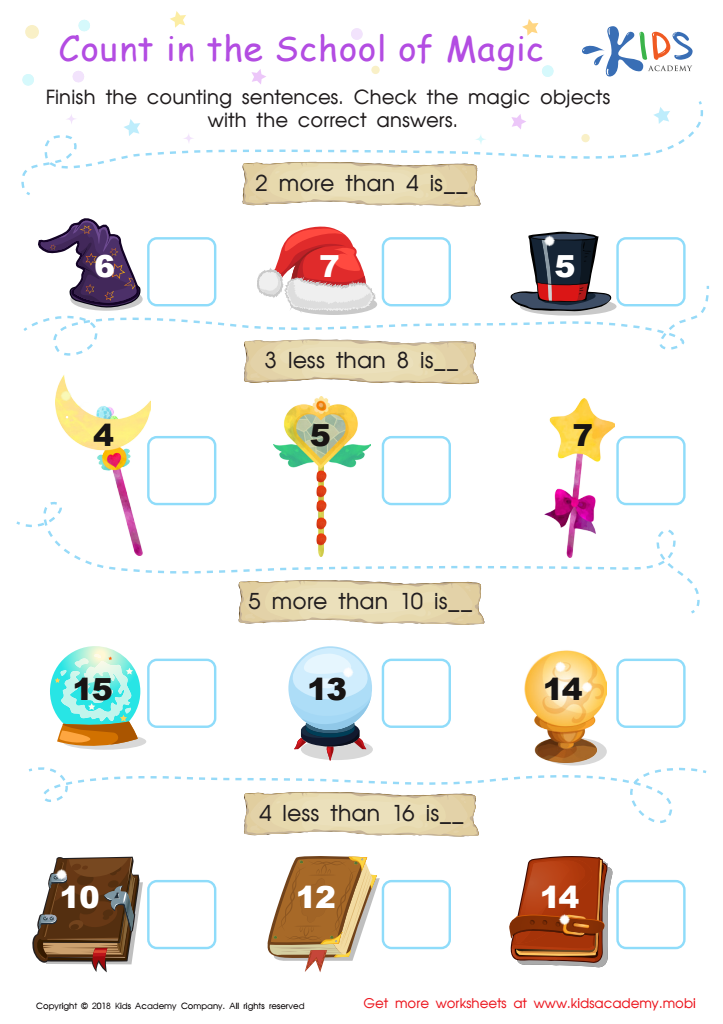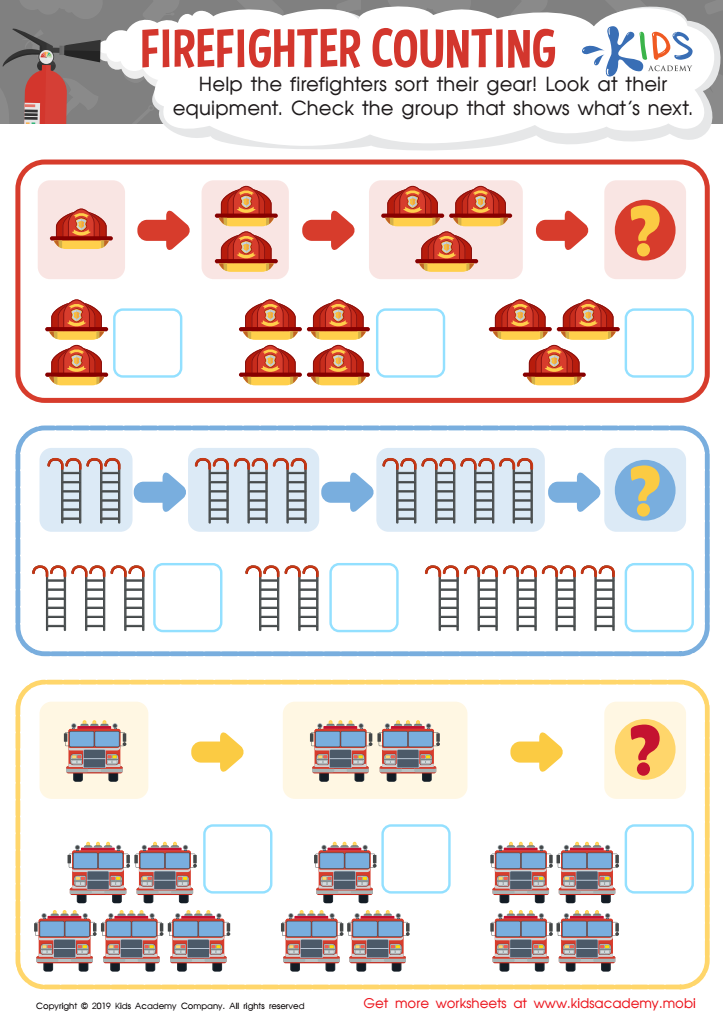Observational skills Easy Numbers Worksheets for Ages 3-8
4 filtered results
-
From - To
Nurture your child's observational skills with our Easy Numbers Worksheets for Ages 3-8! Designed for curious minds, these worksheets engage children through fun and interactive activities that enhance their ability to identify and differentiate numbers. Each exercise targets critical thinking and attention to detail, ensuring your child builds a solid foundation in early math skills. Perfect for both classroom and home use, our worksheets provide a playful approach to learning numbers, making education enjoyable and effective. Boost your child's confidence and observational prowess with our expertly crafted resources at Kids Academy. Explore and download today!


Bugs Tally Worksheet


Count in the School of Magic Worksheet


Party Arrays Worksheet


Firefighter Counting Worksheet
Observational skills are the building blocks of critical thinking and learning, especially in early childhood. Focused observation helps children develop a keen sense of attention to detail, enhances their cognitive development, and builds a strong foundation for future academic and life skills. Incorporating Easy Numbers into activities for ages 3-8 takes advantage of a child's natural curiosity about their environment, fostering their numerical understanding early on.
When parents or teachers emphasize numbers through observation, children begin to recognize patterns, differences, and relationships between objects. For instance, counting the number of apples in a basket, identifying numbers on house doors during a walk, or arranging toys in a particular order helps young children make meaningful connections to the abstract concept of numbers.
Moreover, observational activities improve memory and concentration, essential skills for all areas of learning. They encourage interactive learning, engaging children in conversations about what they see and think. This hands-on experience makes learning tangible and accessible, reducing intimidation around mathematics.
Overall, nurturing observational skills through easy number activities not only builds mathematical foundations but also supports holistic cognitive development. Parents and teachers who prioritize these skills help children grow into more perceptive, independent learners, setting a solid groundwork for success in school and beyond.
 Assign to My Students
Assign to My Students




%20(1).jpg)











